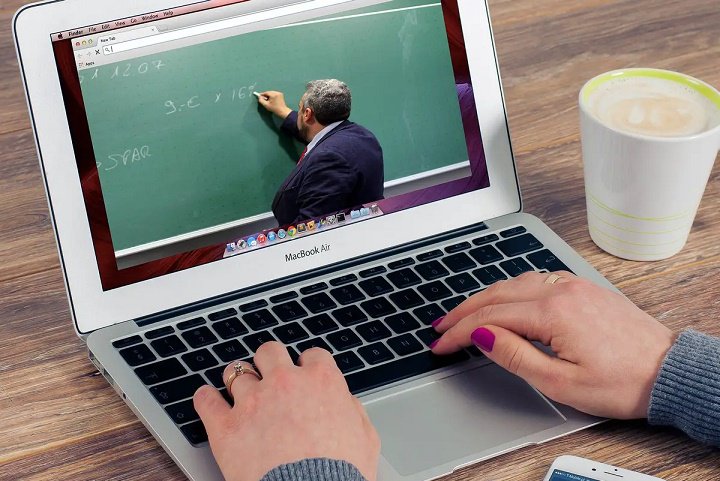If we learn something new daily, life will not be boring. There are many learning opportunities, such as books, podcasts, lectures, and educational programs. Still, we cannot use these resources if we do not have the right mindset and are not receptive to new information and skills. The following will explain the importance of cultivating the learning habit and its methods and stages.
The importance of continuous learning
The most important benefit of learning new things is gaining a broader and more open perspective. Its other advantages are:
- Empathy with a more comprehensive range of people to have deeper relationships;
- A more flexible and comprehensive worldview to achieve a more open and transparent mind and a better understanding of other people and cultures;
- Learn more about yourself, such as your values, what motivates you, and what hobbies you enjoy;
- Advance professionally by acquiring transferable skills such as prioritizing tasks and time management.
Lifelong learning also has many health benefits. For example, it prevents dementia in old age, makes you feel good about yourself, and increases happiness. When dealing with new information or entertainment, you stimulate the substantia nigra and ventral tegmental areas of your brain. Dopamine is released by activating these areas of the brain. Dopamine is a feel-good hormone that causes a sense of pleasure and satisfaction. Although learning new things is usually tricky and challenging initially, it has many valuable benefits.
Eight ways to cultivate the habit of learning in yourself
1. Practicing speed reading
The more information you receive, the more likely you will learn something new. If you are a visual learner, speed reading increases the speed of acquiring new knowledge. Speed reading is a technique in which we scan written information to recognize phrases and sentences instead of individual words. Average reading speed is about 250 words per minute, but with speed reading, you can increase this speed to 400 to 700 words per minute.

To practice speed reading, you can go through the material and write down its five important points or use speed reading programs that highlight only the letters you need to see in your mind to understand the word.
2. Learning from mistakes
Mistakes are part of the learning process. It would be best if you looked at every mistake you make as an opportunity to expand your knowledge. When you make a mistake, admit it and examine why you made the choices that led to that mistake. Then, figure out what happened and areas you need to improve. You can write about your experiences, reflect on them, and learn from them.
3. Curiosity and friendship with the inner child
“Why?” It is the favorite question of every child. The internal and inherent sense of curiosity made you start learning, growing, and understanding the world around you as a child. As an adult, you should also be curious so that you can use the available facilities and opportunities for learning. You can become that curious child again by cultivating the habit of asking questions. For example, you can be more interested in a conversation with a colleague, research the answer to a question on your mind, or attend conferences where you can ask leading experts about their influential work.
4. Getting out of your usual routine
Although daily routines reduce mental energy consumption, they remove you from gaining new perspectives and experiences. Start small, like taking a new route to work or going to a newly opened restaurant. With these things, you can get out of the automatic pilot of your mind.
As time goes by, it becomes easier to try new things. Ultimately, you develop a daily learning habit by exposing yourself to different ideas and trying new things like exercise classes, listening to podcasts, and visiting other restaurants.
5. doing physical activity
Physical activity increases the heart rate and delivers more oxygen to the brain. This increase in oxygen has a positive effect on health and cognitive abilities, and as a result, it increases concentration and brain plasticity. Brain plasticity means neural connections that lead to the formation of new skills.
If you’re not used to physical activity, take more accessible introductory classes or fun activities like dance classes. If you’re an athlete, try an activity you’ve never done before. For example, if you exercise alone, try group exercise. Changing the training program means that you can learn new things every day.
6. Planning for learning
Life is busy, so you should set aside time to learn new things. For example, listen to a podcast on the way, spend 10 minutes reading an article during your break at work, or participate in an online training course for 30 minutes every night.
When we set aside a specific time in our daily schedule to learn something, we won’t forget it. Others will also notice that this is your time and should not be disturbed.
7. Don’t ignore the little things
There is no better or worse skill or knowledge in learning, and you should be eager to seize the little opportunities that arise every day. For example, you can ask the names of 3 people and try remembering them the next day or read a brochure on roasting coffee in a cafe. No information and knowledge is unimportant and of little value. Learning opportunities surround you; You have to keep your eyes open.
8. Hanging out with people eager to learn
Hanging out with people who seek knowledge encourages you to overcome challenges to achieve your learning goals. Interacting with people with views and experiences different from yours also makes your worldview flexible. As a result, you can continue to find new ways to explore knowledge.
Some believe everyone’s personality is the average of the five people they spend most of their time with. So, the more you interact with people eager to learn, the more likely you are to be keen to acquire knowledge.
Learning stages
Whatever your learning style, you can gain better knowledge by following the steps below.
1. Determine what you want to learn
First, you must determine what you want to learn: a new hobby, information about a specific topic, or professional skills. If you don’t know where to start, look for things that you enjoy now or enjoyed as a child but put aside due to other priorities.
If you can’t think of anything, trial and error is also suitable. Try an introductory class or course to see if it’s something you’re interested in.
For example, to get started, you can learn the following:
- Meditation: Regular meditation makes you feel relaxed and able to control your emotions.
- Time management skills: Cultivating time management skills means you can work better within the set deadlines and achieve your goals.
- Public speaking skills: giving a speech or a business presentation scares many people. You can find free public speaking resources online or practice with friends and ask them for constructive feedback to see what went wrong.
- Cooking: You can take cooking classes, spend your free time with someone good at cooking, or watch instructional videos on social media.
2. Goal setting
Set specific, measurable, attainable, and realistic goals to increase your likelihood of success. Break big goals into small parts so you don’t lose motivation and feel frustrated.
3. Using different media
Using multiple media increases your chances of gaining knowledge. For example, if you want to learn to cook, you can watch videos on social networks, cook new dishes every week, and watch a family member cook.
Different learning methods keep you involved in that subject, and when you don’t have enough time or energy, you use alternative methods according to your conditions. If you can’t make it to class, you can read a book on the way to work or listen to a podcast before bed.
4. Using online educational sites

There are many online platforms that you can use to learn different materials and skills according to the conditions and the amount of time you have.
5. Connect with a friend
Having a friend increases the probability of success in learning. Find someone also interested in learning about your subject. Join and stay connected in the learning process. You and your friend can remind and motivate each other to do the homework and work necessary to learn the material.
Another way is to partner with someone who is an expert or skilled in what you want to learn. You can benefit from his knowledge and experience. He also gets a chance to enhance his knowledge by teaching you.
6. Thinking and reflection during the learning process
Don’t forget that you can also learn from your learning process through regular meditation and introspection. This includes validating achievements to increase self-confidence and motivation, addressing weaknesses, and learning from mistakes.
You can keep a journal to track your progress or document your progress by taking photos. Whichever method you use, it’s essential to keep track of your progress to chart your path toward your goal and to boost your spirits when you feel discouraged.
final word
As you learn any new skill or knowledge, you improve your personal and professional life. Your curiosity and eagerness to learn are valuable to those around you, and you also show your managers that you want to progress in the company. When learning and acquiring knowledge and skills become a permanent habit, you will be better every day than the day before and enjoy your life more.



